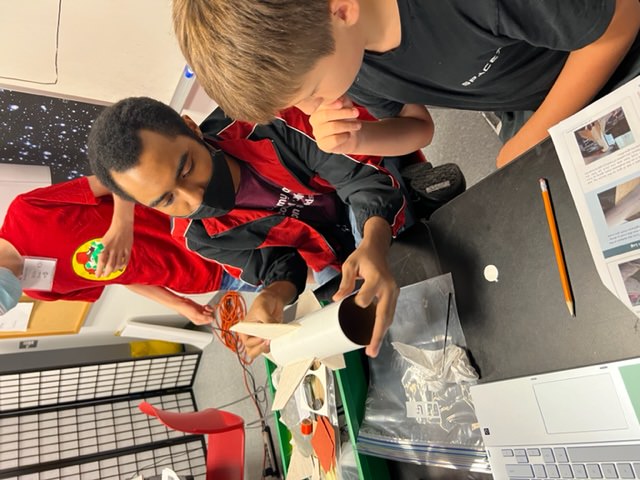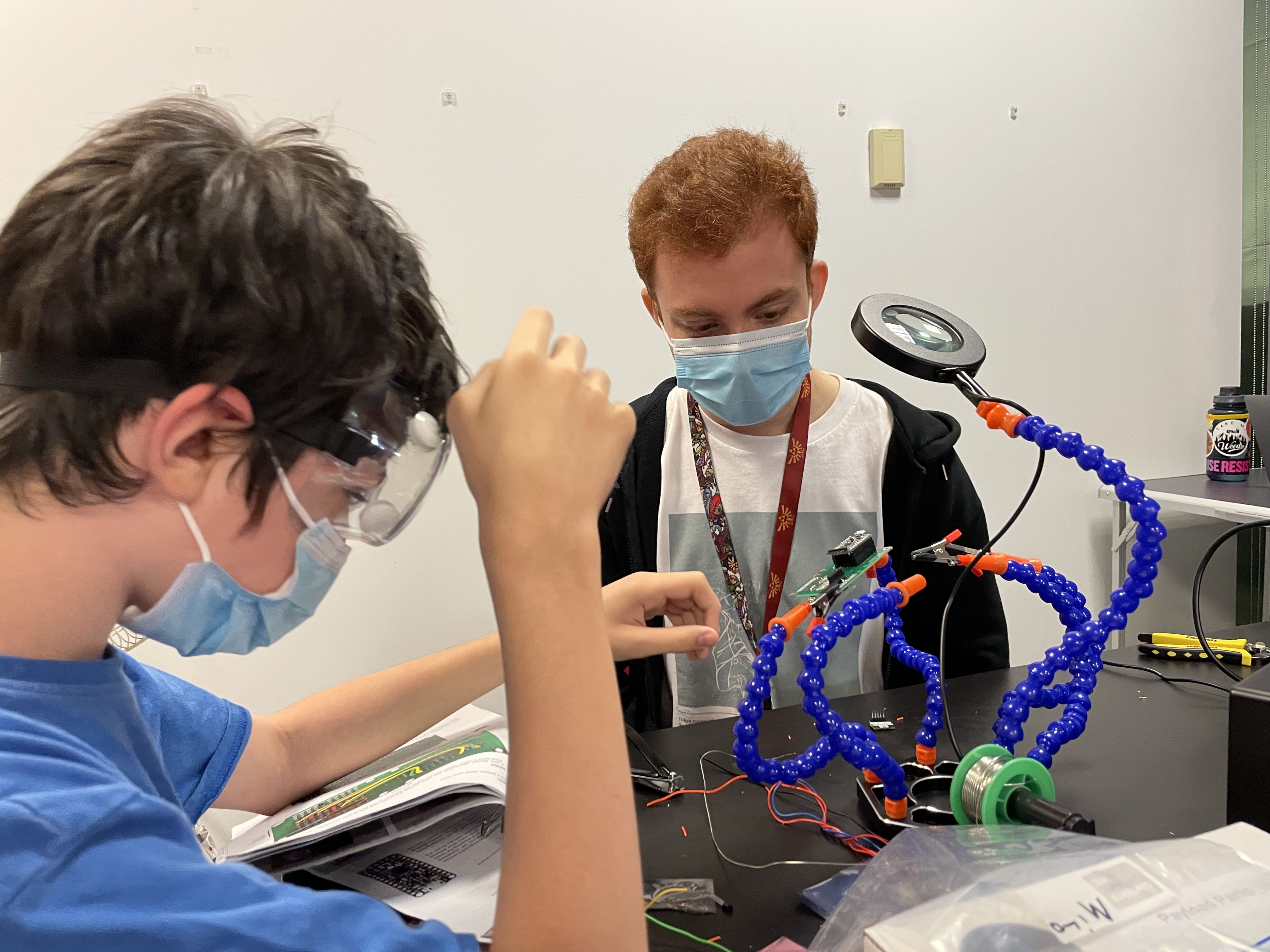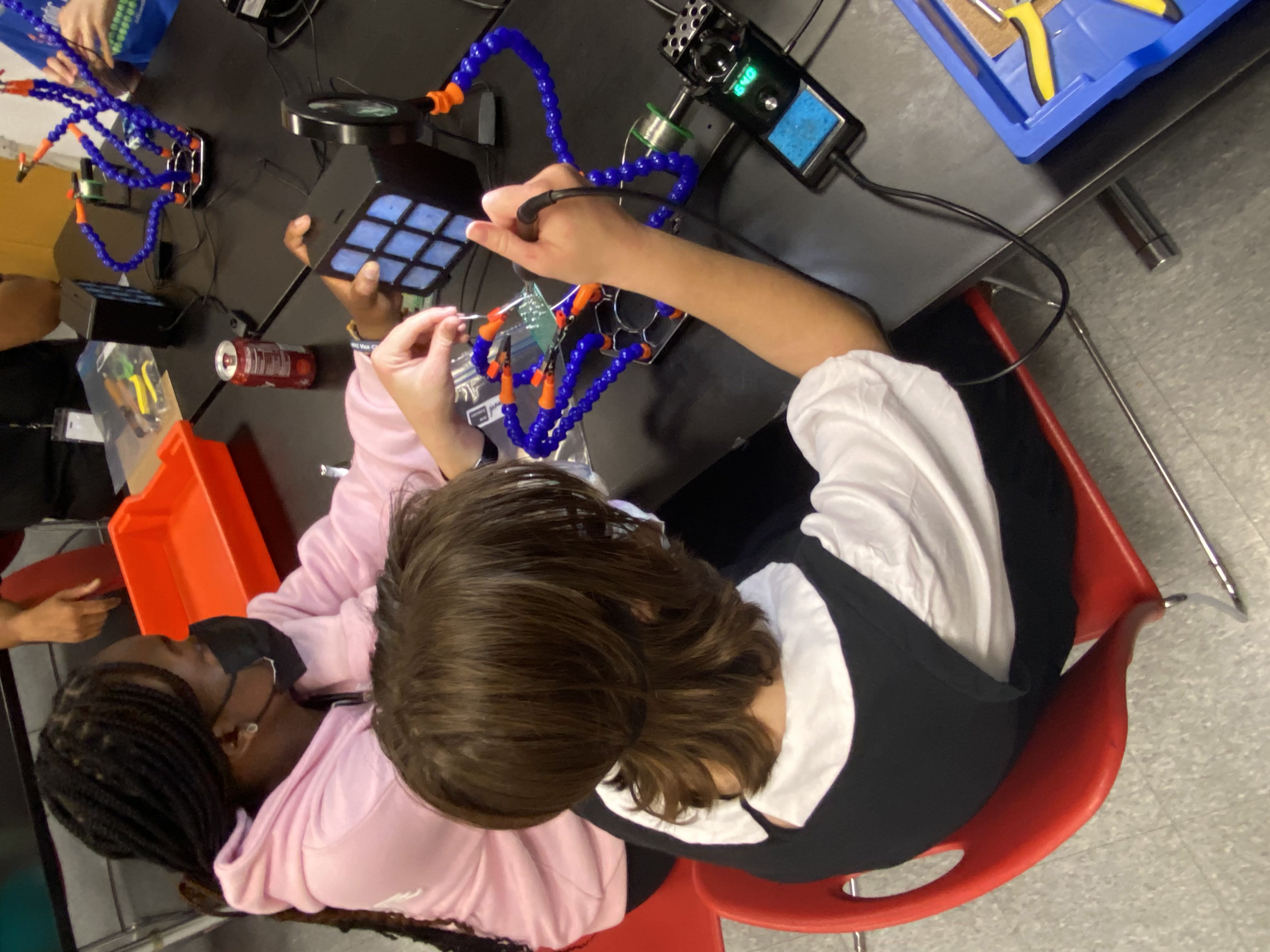N3 Internship
About the N3 Internship
Each year through 2026, NASA's Neurodiversity Network will accept applications for high school summer interns to work on projects with NASA scientists. The goal of the N3 program is to provide experiences for a wide range of talented students, including those who identify as autistic, that will spark their interest in careers in STEM (Science, Technology, Engineering and Mathematics).
All interns will be paired with a Subject Matter Expert (SME) from NASA's network. Individual SMEs will have expertise in at least one of the following areas:
- Planetary Science
- Earth Science
- Astrophysics
- Heliophysics
- Computer Science
- Engineering
- Biological & Physical Sciences
If you have questions about eligibility or application details after reviewing this webpage in full, you can contact our team at n3internships@edc.org.
Explore Projects from previous years:
Information for Students
 Please review the internship requirements below to see if you qualify. To apply, we must receive your application and a letter of recommendation from a teacher who can speak to your skills and interests in specific areas related to NASA subjects. A recommendation letter from a teacher or another professional is required of all applicants. Full applications are due by March 6, 2026 at 11:59 PST. Applicants will be notified of their application result by the end of April.
Please review the internship requirements below to see if you qualify. To apply, we must receive your application and a letter of recommendation from a teacher who can speak to your skills and interests in specific areas related to NASA subjects. A recommendation letter from a teacher or another professional is required of all applicants. Full applications are due by March 6, 2026 at 11:59 PST. Applicants will be notified of their application result by the end of April.
Guidelines:
- Prospective interns must be current high school students 16 years of age or older. If you turn 16 in the year 2026, you are eligible to apply.
- Preference will be given to students who are rising seniors (Class of 2027), but rising juniors and graduating seniors are also invited to apply.
- Prospective interns must have completed pre-calculus, and at least two years of physical science courses (e.g. earth science, chemistry or physics).
- Note that in the past, applicants who have completed a calculus course and two years of physical science have been most likely to be selected.
- All applicants must submit a recommendation letter (see instructions below).
Summer 2026 interns will complete at least 160 hours between June 1 and September 1, 2026. Upon completion of their final projects, interns will receive a $1,000 stipend.
Prospective interns may submit their responses using the linked application form or submit recorded audio, written text, video, or written answers transcribed by a scribe. If there are other accommodations that would assist with your internship application process, please contact our N3 internship team at n3internships@edc.org. We hope to learn from our N3 interns to build our understanding about the best ways to work with a wide variety of outstanding youth.
If you’d like to download the application questions before completing the online form, you may access them here.
Information for Recommenders
 Please review the internship details and list of requirements above to determine if any of your students may be a candidate. For an application to be complete, we must receive a teacher recommendation letter by March 6, 2026 at 11:59 PST. We encourage recommenders to share each applicant’s strengths and challenges with us so that the best possible internship placement can be achieved.
Please review the internship details and list of requirements above to determine if any of your students may be a candidate. For an application to be complete, we must receive a teacher recommendation letter by March 6, 2026 at 11:59 PST. We encourage recommenders to share each applicant’s strengths and challenges with us so that the best possible internship placement can be achieved.
To complete your recommendation of a student for an N3 internship, please email it to n3internships@edc.org.
Letters should answer the following questions:
- What previous experiences, personal qualities and/or interests make this applicant a good fit for an N3 internship? Are there any challenges that would keep this applicant from being a successful intern in a virtual, self-directed program?
- Describe any activities, courses, or examples of work completed by the application which demonstrate their interest in NASA subjects/topics.
- What do you think this applicant would gain from an internship with a NASA SME?
- Are there any accommodations or virtual workplace strategies that you implement to best support this student? Please share with us. This includes recommendations on meeting frequency, communication styles and preferences, executive functioning challenges and/or particular strengths in self-management. We want to support all N3 interns as completely as possible!

